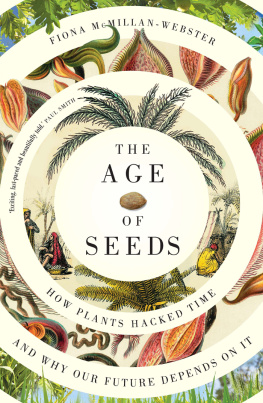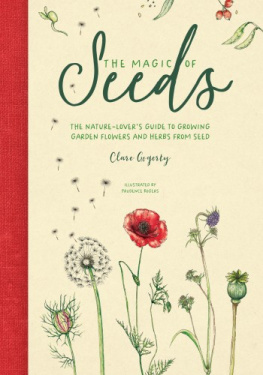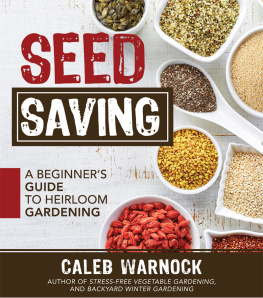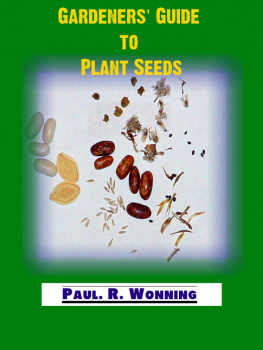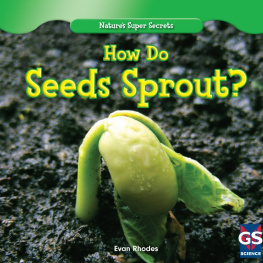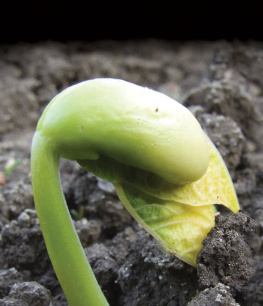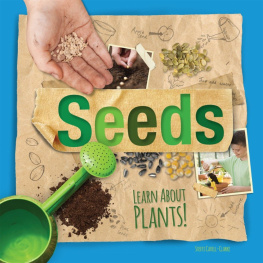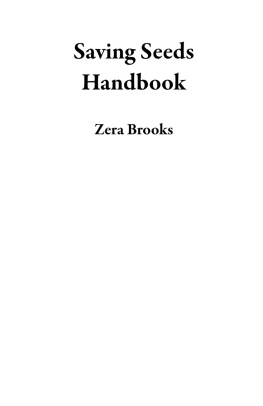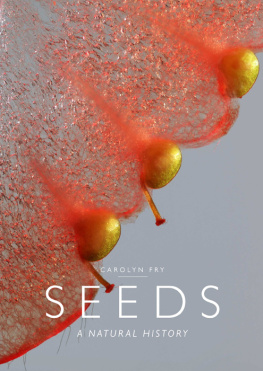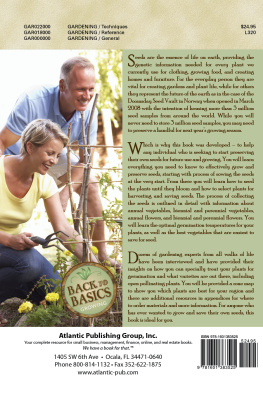The Age of Seeds
Plants evolved seeds to case their genes forward into the future.
When a 2000-year-old extinct date palm seed was discovered, no one expected it to be alive. But it sprouted a healthy young plant. That seeds produced millennia ago could be viable today suggests they are capable of extreme lifespans.
In the face of a growing population, a changing climate and declining biodiversity, it has never been more important to understand how best to make seed plants last.
In The Age of Seeds Fiona McMillan-Webster tells the astonishing story of seeds, the crucial role they play in our everyday lives, and what that might mean for our planet.
Fiona McMillan-Webster is a science writer with a Bachelor of Science in physics and a PhD in biophysics.
Praise for The Age of Seeds:
The expansive story of one of natures great miracles exploring not just the future of a plant, a species or an ecosystem but of our own ongoing survival.
DANIELLE CLODE
Exciting, fast-paced and beautifully told. The Age of Seeds tells the tale of seeds as messengers from the past, adapted by our ancestors to feed, clothe and cure us. The intimate relationship between people and plants is skilfully told, with a fascinating array of historical figures and scientists contributing to the story in their own voices.
The sleeping seed has found a powerful voice in this book, transcending history and geography, in a rip-roaring tale of human endeavour to feed, clothe and cure a human population of nearly 8 billion people
PAUL SMITH

For Ava and Ruby
First published in Australia in 2022
by Thames & Hudson Australia Pty Ltd
11 Central Boulevard, Portside Business Park
Port Melbourne, Victoria 3207
ABN: 72 004 751 964
thamesandhudson.com.au
The Age of Seeds Thames & Hudson Australia 2022
Text Fiona McMillan-Webster 2022
Images copyright remains with the individual copyright holders, see end of book for details
Translation of The Assyrian Tree on page 8 is reprinted from Brunner Ch. J. (1980), The Fable of the Babylonian Tree, Journal of Near Eastern Studies, Vol. 30, pp. 197202, 291302. https://doi.org/10.1086/372829
25 24 23 22 5 4 3 2 1
The moral right of the author has been asserted.
All rights reserved. No part of this publication may be reproduced or transmitted in any form or by any means, electronic or mechanical, including photocopy, recording or any other information storage or retrieval system, without prior permission in writing from the publisher.
Any copy of this book issued by the publisher is sold subject to the condition that it shall not by way of trade or otherwise be lent, resold, hired out or otherwise circulated without the publishers prior consent in any form or binding or cover other than that in which it is published and without a similar condition including these words being imposed on a subsequent purchaser.
Thames & Hudson Australia wishes to acknowledge that Aboriginal and Torres Strait Islander people are the first storytellers of this nation and the traditional custodians of the land on which we live and work. We acknowledge their continuing culture and pay respect to Elders past, present and future.
ISBN 978-1-76076-178-3 paperback
ISBN 978-1-76076-307-7 ebook

Every effort has been made to trace accurate ownership of copyrighted text and visual materials used in this book. Errors or omissions will be corrected in subsequent editions, provided notification is sent to the publisher.
Cover design: Design by Committee
Cover credit: bigstockphoto.com / Wikimedia Commons
Typesetting: Cannon Typesetting
Editing: Paul Smitz
Printed and bound in Australia by McPhersons Printing Group

FSC is dedicated to the promotion of responsible forest management worldwide. This book is made of material from FSC-certified forests and other controlled sources.
Contents
Prologue
I feel a bit guilty when I find the old packet. I recall having the best of intentions when I bought it, but inexplicably, here it is, on the bedroom dresser.
I freely admit things tend to pile up right here. Elsewhere in the house, tidiness and chaos wax and wane in fairly regular cycles, but on this modest rectangle of timber, I mostly let entropy have its way. There are layers of good intentions: photographs meant be framed; drawings to be carefully stored; books to be read; receipts, notes and scripts to be filed; a few small recyclables to be reused; an indoor-skydiving gift voucher to be exchanged for something less terrifying. In some ways its oddly optimistic, this mundane detritus. Its as if, contrary to all the evidence, I truly expect to get around to such things. Or perhaps its that nothing in my house is truly lost until Ive searched here.
Today, while looking for something else entirely, I find that small packet of seeds. Friendly yellow script announces the contents as sunflower seeds, and there is a cartoon image of a little girl gazing at a giant sunflower, its petals expanding beyond her entire person. The girls expression is an astonished joy worthy of a unicorn sighting. Behind her is a bucolic scene of blue skies and green fields. Its a simpler world, a better world. The suggestion, though not legally binding, is that perhaps I, too, can grow child-sized sunflowers on towering stems.
I still want a garden full of sunflowers for my daughters tall, happy flowers surrounding the house. The rest of the world might go awry, but we can have some of that bucolic joy here. The flowers will bloom and their sun-like heads will follow the arc of our star throughout the day. I will point this out to my girls and talk about why sunflowers do this. We might talk, too, about Earths rotation, and why the seasons are what they are. We will read books out there and the children will momentarily forget that iPads exist. The dog, miraculously no longer inclined to dig up the yard, will laze in the dappled shade. Yes, it will be lovely, this garden. Sunflowers are not considered the most beautiful of all flowers, but there is an exuberance about them, something quite unapologetically grand and cheerful, that always makes me smile.
I have set out to plant the seeds in this packet a few times, but this has never eventuated and the packet has ended up on the Dresser of Entropy. It is now creased in places and browning slightly on one edge. I pick it up with a soft sigh, tilt it one way and then the other, listening to the seeds rattle about inside the stiff paper it is the faint, dry sound of forgotten plans. I realise I dont remember exactly when I bought these seeds. I simply cant recall how far back this particular good intention goes.
I turn over the packet. Theres a stamp in the lower corner that says, Sow by: August 2018. Oh dear. When I bought these seeds, August 2018 was an idle hand-wave at the distant future, but now it is a few years in the past. I frown at the stamped date. If I had simply planted these seeds when Id bought them, we would have that lovely garden. But I wonder if its not too late: the kids are still kids, and anyway, youre never too old for sunflowers.
I could purchase new seeds, but I suspect that throwing these ones in the bin and promising myself I will go to the nursery is a pathway to further procrastination, and Im not willing to concede defeat this time. Theres potting soil somewhere in the garage, so I can start right away. I also realise that I have no idea exactly what the stamped date means. Does Sow by mean Best before this date and probably okay after that, but no promises? Or does it point to some cold, hard moment of expiry? I can feel the rising swell of questions.
Next page
